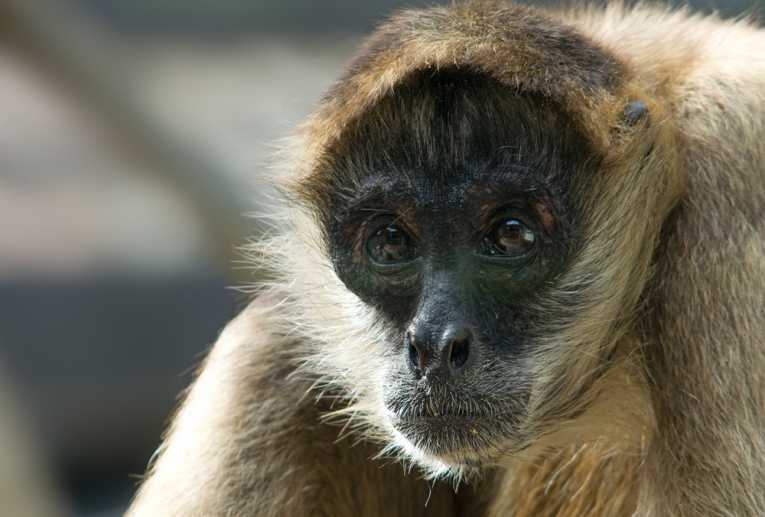A muriqui is a monkey that inhabits the forests of Brazil. Also known as the woolly spider monkey, they live the peaceful life of a folivore, consuming the abundant greenery that surrounds them. Although their diet might suggest that complex social behaviour would be unnecessary, they have a sophisticated societal structure that has intrigued the anthropologist K. B. Strier.
Over a period of almost 30 years, Strier and additional researchers from New York University, the University of Texas and the Universidade Federal do Espirito Santo (Brazil), have been tying together behavioural studies with genetic studies to see the interconnected nature of social groups and individuals. A surprising result of the study was the discovery of the importance of older females in the groups.
The study showed that there is a possibility of young males deriving reproductive benefits by living with their mothers. Using the feces from over 60 monkeys, genetic data was recorded and analysed and when cross-referenced with behavioural studies they could identify the paternal relations and social dynamics of the groups of monkeys. They saw that mothers would spend their entire lives with their sons. Referring to the mothers Strier noted, "The new data show who's pulling the strings in muriqui society."
They also confirmed the cooperation and equality seen amongst breeding males. The data identified the spread of paternity within the group was wide with 22 infants produced by 13 distinct fathers. Often in other species a small number of males will dominate a group's reproductive success.
The long-term presence of close female family members would risk the possibility of inbreeding but the genetic results showed that this was not happening. The stabilising presence of the older females without the risk of inbreeding provides a beneficial role in muriqui society.
Published in the Proceedings of the National Academy of Sciences, Strier's work will affect conservation efforts for this rapidly dwindling population of animals. Reduced to fewer than a thousand monkeys, the muriqui require care, and knowledge of the roles of older females will help to reduce the impact.










